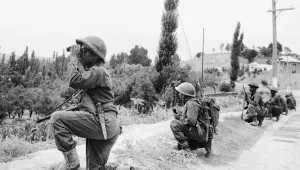Introduction
William Tobey, Senior Fellow at the Belfer Center for Science and International Affairs, testified before the Senate Foreign Relations Committee on lessons from prior arms control and disarmament agreements for the current negotiations with Iran. Using examples from Iraq, North and Libya, he identified five key patterns for arms control negotiators to be cognizant of, including the fact that decisions to disarm are usually incomplete and taken incrementally, deceptive actions by the proliferator can appear as progress, strong verification and intelligence measures can deter cheating while lax verification can encourage it, verification is built on checking declarations for inconsistencies, and inspections are only as effective as political support. From these lessons, he identified three key lessons, including a complete declaration of nuclear activities is crucial, unwillingness to provide this declaration is evidence of Iran's willingness to comply with a full agreement, and successful agreements require vigilance over time, and cannot be considered solved after an agreement is signed.
Tobey, William. “Lessons Learned from Past Negotiations to Prevent Nuclear Proliferation.” June 26, 2015
The full text of this publication is available in the link below.



